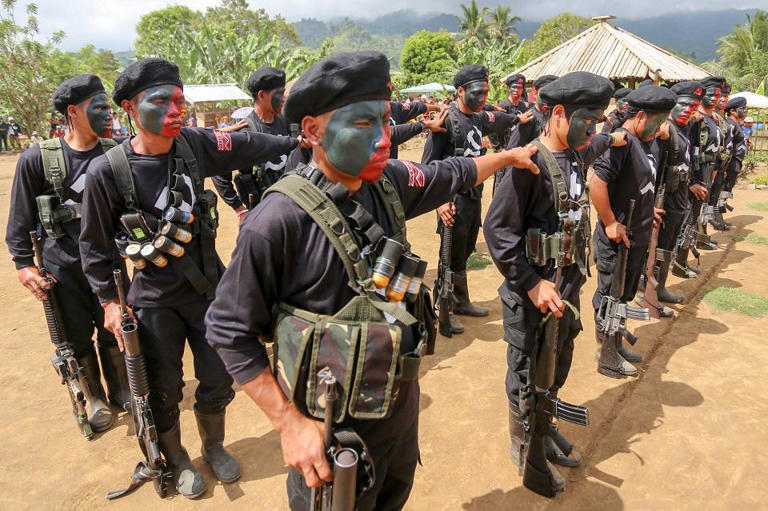The Presidential Communications Office (PCO) announced on Sunday that the Anti-Terrorism Council (ATC) has decided to maintain the Communist Party of the Philippines-New People’s Army (CPP-NPA) on its list of terrorist organizations. This designation comes alongside the continued listing of Islamic State East Asia (ISEA) and other Daesh-affiliated groups operating in the Philippines.
The decision to retain the CPP-NPA’s terror status stems from the group’s alleged involvement in over 200 violent acts documented between December 2020 and August 2023. These atrocities include the 2021 Masbate City bombing that claimed the life of young footballer Kieth Absalon and attacks that disrupted classes across four municipalities.
According to the PCO, citing data from the Philippine National Police (PNP) as of December 2023, the CPP-NPA’s designation is further supported by 54 documented violations of the Terrorism Financing Prevention and Suspension Act of 2012 and the Anti-Terrorism Act (ATA), along with 478 pending court cases.
The ATC’s decision to maintain the terror listing of ISEA and other Daesh-linked groups hinges on their “continued involvement in terrorist activities” that contradict the ATA. The council elaborated that these groups have violated various anti-terrorism law sections.
In a separate development, the ATC designated Elizabeth Pineda Principe, a peace consultant for the National Democratic Front (NDF), as a terrorist. The council based its decision on “verified and validated information, sworn statements, and pieces of evidence gathered by different Philippine law enforcement agencies and the military.”
The ATC alleges that Principe, who operates under various aliases, has violated the Anti-Terrorism Act through acts of terrorism, planning and facilitating terrorist acts, and recruitment for or membership in terrorist organizations.
This move by the ATC is likely to complicate further the already strained peace talks between the Philippine government and the communist rebels. The inclusion of a peace consultant on the terror list raises questions about the future of negotiations and the government’s commitment to a peaceful resolution of the decades-long conflict.






